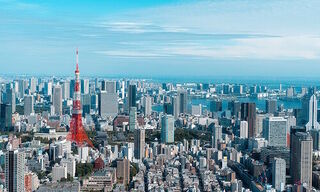A wide-ranging human rights report sees serious human rights violations in China’s western province, paving the way for more sanctions.
The United Nations Office of the UN High Commissioner for Human Rights (OHCHR) had a clear message to business yesterday when it came to any activities in Xinjiang Province – make sure that you are not part of it.
The office released the extensive 48-page assessment after hearing of claims in 2018 alleging human rights abuses by China’s government to counter terrorism and religious extremism in the province’s ethnic Uygurs and other Muslim minorities.
The report was distributed shortly before the end of Michelle Bachelet’s term as high commissioner of human rights. In the lead-up to its disclosure, there was frequent speculation in the media that the former president of Chile would not be transparent or outspoken about the alleged abuses.
Serious Abuses
That was subsequently and promptly dispelled by the assessment, as the OHCHR held China to account for its obligations under numerous international human rights treaties that it is a signatory of.
In its assessment, it indicated «serious human rights violations» had occurred, including «large-scale arbitrary deprivation of liberty» of ethnic minorities.
These included credible allegations «of patterns of torture or ill-treatment, including medical treatment», adverse detention conditions, and incidents of sexual, gender-based violence.
Due Diligence
The last page of its report was for the business community, where it was unreservedly stated that companies should take «all possible measures» to respect human rights in their activities and business relationships by enhancing their due diligence and reporting transparently.
They additionally noted that companies in surveillance and security should assess whether any of their products could potentially lead to human rights infringements on privacy, movement, and discrimination.
«OHCHR recommends to the international community that it supports efforts to strengthen the protection and promotion of human rights in the XUAR region in follow-up to these recommendations,» it indicated.
Further Sanctions
The last sentence is likely to be interpreted by many governments as a cue to impose further sanctions and restrictions.
The US first leveled sanctions against China for the alleged activities in Xinjiang in 2020 under the Global Magnitsky Human Accountability Act. It then imposed additional measures on entities and individuals at various junctures in 2021 in conjunction with similar actions taken by the European Union, the UK, and Canada.
The Chinese government issued a firm rebuttal to the assessment, saying it firmly opposed its release, adding that it was based on disinformation and lies that were fabricated by anti-China forces.



























